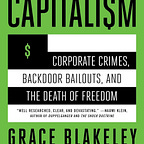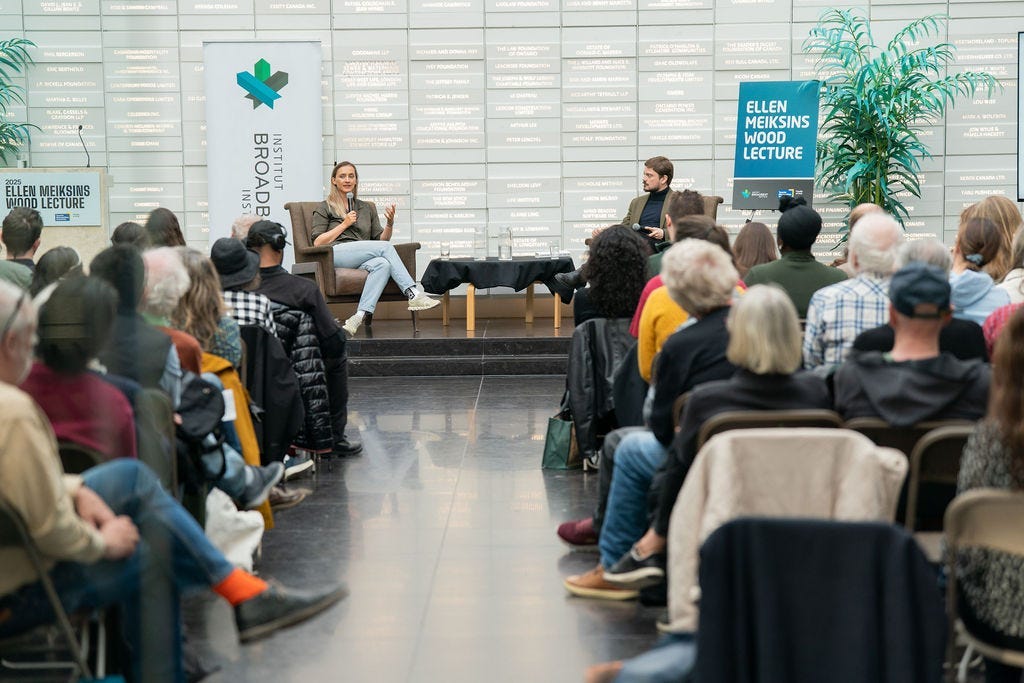Today’s post is the first I’ve published in podcast form here on Substack. During her recent visit to Toronto, I had a far-ranging conversation with the British economics and politics writer Grace Blakeley. Grace was in town to deliver the annual Ellen Meiksins Wood lecture, put on by the Broadbent Institute in honour of one of the 20th century’s great Marxist historians and social theorists. You can find her full address, entitled Genuine Democracy in an Age of Hyper-Individualism and delivered at Toronto Metropolitan University, here.
The attached discussion between the two of us was recorded a few days later, and touches on a fairly wide range of different themes — including a few that feature prominently in Grace’s excellent recent book Vulture Capitalism. We began more or less by talking about the state of things in the present, and the general state of play when it comes to liberalism, conservatism, and socialism, though later got into much else as well.
Grace belongs to a radical tradition of the democratic left with which I strongly identify. One thing her book does particularly well is deconstruct some of the clunky dichotomies that have come to shape the vernacular of contemporary political economy (markets vs central planning, small government vs. big government, and so on). Among other things, Vulture Capitalism persuaded me of the extent to which present economics discourse continues to be mired in idioms handed down from the postwar debate between John Maynard Keynes and Friedrich Hayek — a bequest that is, in many ways, profoundly unhelpful to us in the 21st century.
Collectively, there needs to be a better understanding of the extent to which every economic and social system of sufficient size and complexity — whether Keynesian, socialist, or capitalist — involves some form of planning. “The question we should ask ourselves,” Grace writes, “is not whether planning is possible in a capitalist economy. Instead, we should be asking where planning is taking place, how it is being executed, and whose interests it is serving.”
Asking these questions will inevitably raise others related to democracy — and, in many ways, that was the structuring theme of our whole conversation. If you haven’t read it, you’ll find Vulture Capitalism: Corporate Crimes, Backdoor Bailouts, and the Death of Freedom here. I also recommend Grace’s Substack.
In any case, the attached discussion begins with a brief cold open, followed by a short introduction I recorded for the Broadbent Institute/Perspectives Journal podcast. I’m pleased to be able to share it, and hope you all enjoy.
-Luke










